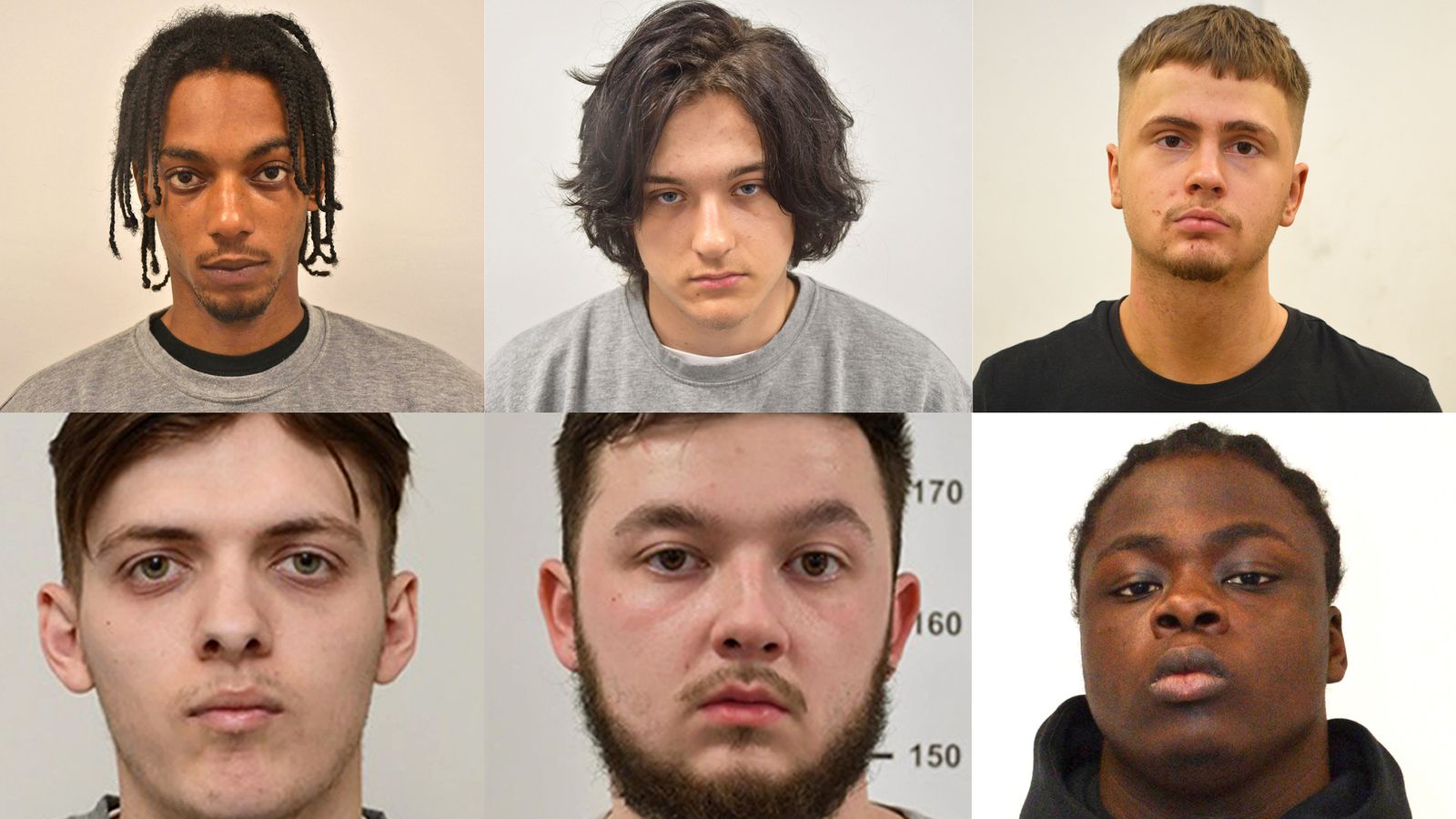
The high-profile case, stemming from a March 2024 fire at an east London industrial estate, has spotlighted spying and sabotage campaigns allegedly run by Moscow and its proxies across Europe.
Western countries have accused the Kremlin of masterminding a string of such incidents to undermine support for Ukraine as it battles Russia’s invasion, with UK counterterrorism police making a series of arrests, including earlier this week.
Lawyers for some of the six sentenced Friday at London’s Old Bailey court said Russian operatives had preyed upon their “unsophisticated” clients’ vulnerabilities, which included financial, drug and mental health issues.
As well as the arson, some in the group — whose ages ranged from 19 to 22 at the time — had plotted to kidnap a billionaire Russian dissident in London before police intervened.
Handing the men varying but lengthy jail terms, Judge Bobbie Cheema-Grubb said the case highlighted “interference… by a foreign power leveraging the greed and base instincts of unsophisticated individuals”.
She said “anonymous recruiter proxies operating through internet chat rooms” on encrypted platforms had found young men “who were prepared to undergo a form of radicalisation and betray their country for what seemed easy money”.
– ‘Treason’ –
Agreeing the crimes had a “terrorism connection”, Cheema-Grubb handed the planner of the arson attack, Dylan Earl, the longest term of 23 years — 17 in custody and six on licence.
Co-defendant Jake Reeves was sentenced to 13 years.
“In past years, our parents and grandparents would have had a simple term for what Dylan Earl and Jake Reeves did: treason,” Cheema-Grubb said.
They were the first people sentenced under the UK’s 2023 National Security Act, passed to counter evolving threats from hostile states.
A low-level drug dealer from central England, Earl pleaded guilty to various offences including aggravated arson and possession of criminal property.
He used the Telegram messaging app to meet and then correspond with members of Wagner, which is classed as a “terrorist” organisation by Britain.
Earl then recruited Reeves — whom he never met — to burn down the business supplying communications equipment to Ukraine.
Reeves, who did not initially know of the Wagner link, recruited fellow south Londoners Nii Mensah, 23, Jakeem Rose, 23, and Ugnius Usmena, 20, to torch the site and live-stream it back to Earl on the FaceTime app.
Mensah, Rose and Usmena were sentenced to between eight and 10 years each.
It took 60 firefighters to control the resulting blaze, which caused about £1.3 million ($1.5 million) of damage.
But the murky Russia-linked operatives who ordered it were not satisfied and never paid the £9,000 they had agreed.
In order to get paid, Earl and Reeves — who then learned of the Wagner connection — agreed to attack a central London restaurant and kidnap its owner Evgeny Chichvarkin, a high-profile Russian critic of President Vladimir Putin.
However, police arrested the men before the plans were carried out.
Security Minister Dan Jarvis said the sentences “send a clear message: we will not tolerate hostile activity by foreign states in our country”.
– ‘Sabotage’ –
Prosecutor Duncan Penny told the court Thursday that ringleader Earl was behind “a sustained campaign of terrorism and sabotage on UK soil” to support Russia.
But Earl’s lawyer Paul Hynes called the characterisation “hyperbole”, describing him as a fantasist whose “desperate, pathetic” Telegram messages were full of exaggerations.
They included falsely claiming to have visited various countries and to know international gangsters and Irish paramilitaries.
“He is a sad individual who… sat for lengthy periods alone in his bedroom at his parents’ house and led a minimalistic existence taking drugs and gaming online,” he said Thursday.
“He was easy meat for the very sophisticated operatives of the Wagner Group acting as proxies for the Russian Federation.”
Reeves’ lawyer Henry Blaxland agreed the case showed “agents of the Russian state have managed to penetrate the UK through taking advantage of adolescents buried in their computers”.
He also noted his client suffered a Ketamine addiction at the time which “completely distorted his judgement”.
jj/mp/rlp






